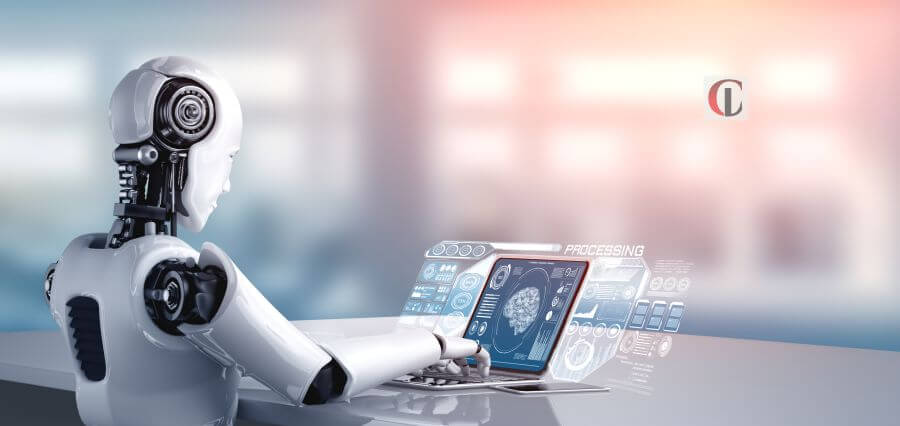Artificial Intelligence (AI) and Machine Learning (ML) have consistently evolved from technological concepts and become the backbone of modern innovation. These fields, which once existed in fiction, now drive pivotal advancements across various industries. In the 21st century, understanding the innovations leading the charge in AI and ML is crucial for grasping their impact on our future.
The Rise of AI and ML
Artificial Intelligence refers to the simulation of human intelligence in machines programmed to think and learn like humans. ML, a subset of AI, involves the development of algorithms that allow computers to learn from and make predictions or decisions based on data. The constructive collaboration between these technologies has led to groundbreaking developments that reshaped industries from healthcare to finance.
Key Innovations Shaping the Future
~ Generative AI and Advanced Language Models
Recent advancements in generative AI, particularly in natural language processing, have been transformative. Models like OpenAI’s GPT-4 and Google’s Bard can generate human-like text, engage in complex conversations and create content based on minimal prompts.
These advancements have significant implications for customer service, content creation and even programming. The ability of these models to understand and generate human-like text is revolutionizing how businesses interact with customers and streamline their operations.
~Reinforcement Learning and Autonomous Systems
Reinforcement learning (RL) is a type of machine learning where agents learn to make decisions by receiving rewards or penalties. This technology is at the forefront of developing autonomous systems. Reinforcement learning is essential in creating sophisticated robots and self-driving vehicles.
Companies like Tesla and Waymo are leveraging RL to enhance their autonomous driving technologies, aiming to create safer and more efficient transportation systems. This innovation has the potential to transform urban mobility, reduce traffic accidents and even redefine transportation infrastructure.
~ AI in Healthcare
AI’s integration into healthcare is one of the most promising applications. It encompasses AI-driven diagnostics, personalized treatment plans and predictive analytics. For instance, IBM uses Watson AI to analyze medical literature and patient data, aiding cancer diagnosis and treatment recommendations.
Similarly, AI algorithms are utilized to develop personalized medicine strategies and predict how individual patients will respond to specific treatments based on their genetic profiles. These advancements are paving the way for more effective and tailored healthcare solutions.
~ Ethical AI and Bias Mitigation
As AI systems become more prevalent, ethical concerns and mitigating biases have become increasingly important. Developers are making efforts to develop frameworks and guidelines that ensure AI technologies will be used responsibly and fairly.
In addition, organizations like the Partnership on AI and the AI Ethics Lab are working on establishing ethical standards for AI development and deployment. AI systems need to be transparent, accountable and unbiased which is crucial for gaining public trust and ensuring that these technologies are beneficial to society.
~ AI in Creative Industries: Art, Music, and Entertainment
In creative industries, the application of AI has opened new avenues for artistic expression. AI-generated art, music and even scripts are becoming more sophisticated, challenging traditional notions of creativity.
AI programs like DeepArt and Aiva can create original pieces of art and compose music that rivals human creations. These innovations are not only expanding the boundaries of creativity but also democratizing the creative process, allowing more people to engage with and contribute to the arts.
Future Directions and Challenges
The future of AI and ML has potential to revolutionize technological advancements, however, it also comes with challenges. As these technologies continue to advance, issues such as data privacy, job displacement and the ethical implications of AI decision-making will need to be addressed. AI developments should be guided by ethical considerations and used for the greater good is essential.
In conclusion,
AI and ML are leading a technological revolution that is reshaping industries and our daily lives. Innovations in these fields are driving advancements in numerous areas, from autonomous vehicles and healthcare to creative arts and ethical considerations. As we continue to explore the potential of AI and ML, it is crucial to navigate the challenges and ensure that these technologies are developed and deployed responsibly.
Leading the charge in AI and ML requires not only technological prowess but also a commitment to ethical principles and societal well-being. By addressing these challenges and harnessing the full potential of AI and ML, we can look forward to a future where these technologies drive positive change and unlock new possibilities.

